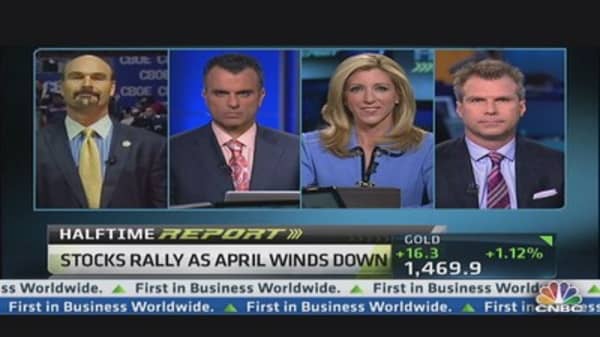Small caps traditionally have less international exposure than larger companies and are more sensitive to growth in general. The Russell 2000 generates less than 20 percent of sales outside of the U.S., while the S&P 500 companies collectively make nearly a third of its revenue from international markets. And cyclicals with non-U.S. revenues have lagged the market in 2013, gaining just 5 percent versus 15 percent for domestic cyclicals and 17 percent for defensives.
"The domestic/international performance split reflects confidence in the U.S. economic outlook for the second half of 2013 but also the ongoing recession in Europe and recently reduced growth expectations in China," according to Goldman Sachs.
A recent bout of negative data from China and Europe has raised further red flags in the market.
Most recently, China's economic growth unexpectedly slowed in the first quarter to an annual rate of 7.7 percent from the 7.9 percent pace set in the fourth quarter of last year. Adding to woes, the World Bank last week pared back its 2013 growth forecasts for developing East Asia.
At the same time, confidence in the euro zone's economy has declined by more than expected for a second month in April, further underscoring the region's challenging road out of recession.
Meanwhile, U.S. data has hit what is seen as a temporary soft patch, but housing has remained encouraging and jobless claims data have returned to a lower pace. U.S. first quarter GDP grew at a disappointing 2.5 percent rate in the first quarter, and economists expect it to be about half that in the second quarter, before recovering later in the year.
(Read More: Despite Economy, S&P Nears Record)





